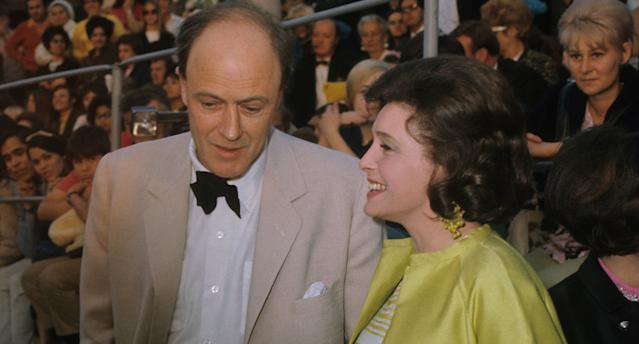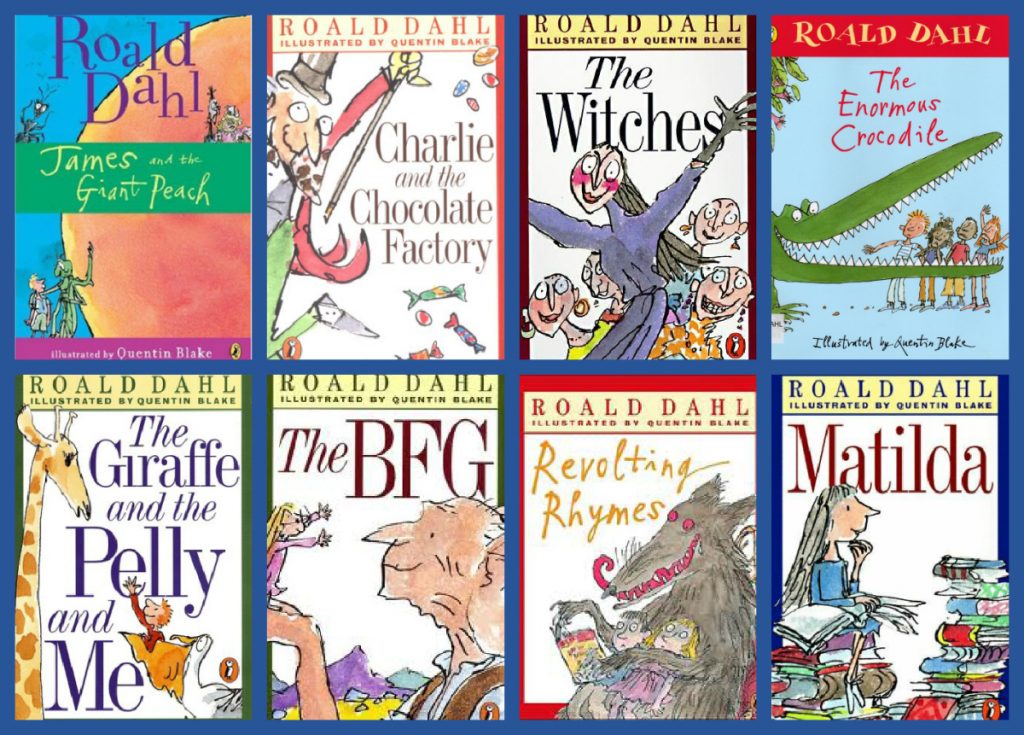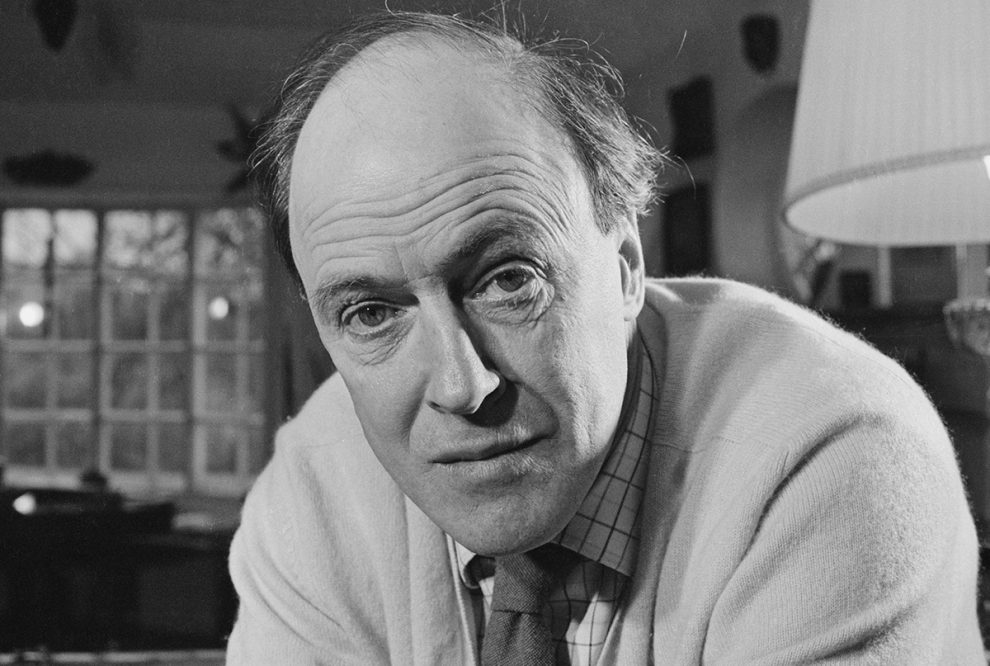ROALD DAHL, who was born in Wales to Norwegian immigrant parents, remains one of the most popular children’s authors in the world – with novels including Charlie and the Chocolate Factory, Matilda and The BFG all adapted for the big screen.
However, despite inspiring countless children, he has a controversial past which has been in the spotlight in recent times.
In the 1993 book Roald Dahl: A Biography, author Jeremy Treglown wrote that Dahl was a man of contradictions: “He was famously a war hero, a connoisseur, a philanthropist, a devoted family man who had to confront an appalling succession of tragedies. He was also, as will be seen, a fantasist, an anti-Semite, a bully and a self-publicizing troublemaker.”
Dahl lived in Africa for a year after taking a position with Shell Oil in Dar es Salaam, Tanganyika (now in Tanzania), following his graduation from Repton, a British boarding school, in 1934. In 1939, following the outbreak of World War II, he enlisted in the Royal Air Force and served as a fighter pilot before suffering severe injuries to his head, nose and back in a plane crash in the Libyan desert.
Dahl was eventually sent to Washington, D.C., to join the British Embassy as an assistant air attaché, and it was there that he began his writing career, publishing a short story in the Saturday Evening Post.
In July 1953, Dahl married Hollywood actor Patricia Neal.

It was Neal who coined the nickname ‘Roald the Rotten’, referring to a mean, dyspeptic streak of which she saw plenty. He cheated on her, and the years-long affair that would eventually end their marriage was with a friend of hers.
Dahl also experienced much tragedy during this time.
Ahead of the 1961 publication of James and the Giant Peach, Dahl’s 4-month-old son Theo suffered a severe brain injury when his pram was hit by a taxi in New York City. This was followed by the death of his eldest daughter, Olivia, of measles encephalitis at the age of 7 in November 1962. Neal then suffered a series of strokes in February 1965 from which she never fully recovered.
Dahl and Neal divorced in 1983, and later that year he married set designer Felicity Crosland, with whom he’d allegedly had an 11-year affair. Dahl’s later years were arguably the most successful of his career, but also the period that has fueled the most controversy.
In a review of a book about the Lebanon War that appeared in the August 1983 edition of the British periodical Literary Review, Dahl wrote, in reference to Jewish people: “Never before in the history of man has a race of people switched so rapidly from being much-pitied victims to barbarous murderers.”
He also made reference to “those powerful American Jewish bankers” and asserted that the United States government was “utterly dominated by the great Jewish financial institutions over there.”
Later that same year, he doubled down on his statements in an interview with the British magazine New Statesman. “There is a trait in the Jewish character that does provoke animosity, maybe it’s a kind of lack of generosity towards non-Jews,” he said.
“I mean, there’s always a reason why anti-anything crops up anywhere; even a stinker like Hitler didn’t just pick on them for no reason.”
Seven years later, in a piece in the Independent, the author acknowledged he had “become anti-Semitic”.
He said: “I’m certainly anti-Israeli, and I’ve become antisemitic in as much as that you get a Jewish person in another country like England strongly supporting Zionism.
“I think they should see both sides.
“It’s the same old thing: we all know about Jews and the rest of it. There aren’t any non-Jewish publishers anywhere, they control the media – jolly clever thing to do – that’s why the president of the United States has to sell all this stuff to Israel.”

Shortly before his death, Dahl received a letter from two San Francisco children that read: “Dear Mr Dahl, We love your books, but we have a problem … we are Jews!! We love your books but you don’t like us because we are Jews. That offends us! Can you please change your mind about what you said about Jews. Love, Aliza and Tamar.”
In 2018, the Royal Mint chose not to issue a commemorative coin on the 100th anniversary of his birth because of his anti-Semitic views. At the time, Wes Streeting, Labour MP, applauded the decision by the Royal Mint, citing the author’s “classic, undeniable, blatant anti-Semitism”.
In response to the Royal Mint’s decision, Amanda Bowman, vice president of the Board of Deputies of British Jews, also spoke out against Dahl.
“The Royal Mint was absolutely correct to reject the idea of a commemorative coin for Roald Dahl,” she said.
“Many of his utterances were unambiguously anti-Semitic. He may have been a great children’s writer but he was also a racist and this should be remembered.”
In 2020, on the author’s website, his family issued an apology for the anti-semetic remarks.
The short statement read: “The Dahl family and the Roald Dahl Story Company deeply apologise for the lasting and understandable hurt caused by Roald Dahl’s anti-Semitic statements.
“Those prejudiced remarks are incomprehensible to us and stand in marked contrast to the man we knew and to the values at the heart of Roald Dahl’s stories, which have positively impacted young people for generations.
“We hope that, just as he did at his best, at his absolute worst, Roald Dahl can help remind us of the lasting impact of words.”
A spokesperson for the Campaign Against Antisemitism said it was “disappointing” Roald Dahl’s family “waited 30 years to make an apology”.
“It is a shame that the estate has seen fit merely to apologise for Dahl’s anti-Semitism rather than to use its substantial means to do anything about it,” the spokesperson said.
“The apology should have come much sooner and been published less obscurely, but the fact that it has come at all – after so long – is an encouraging sign that Dahl’s racism has been acknowledged even by those who profit from his creative works.”
“This apology should have happened long ago — and it is of concern that it has happened so quietly now,” said Marie van der Zyl, president of the Board of Deputies of British Jews. “Dahl’s abhorrent antisemitic prejudices were no secret and have tarnished his legacy.”
Van der Zyl suggested that educators should use Dahl’s books as an opportunity for young people to “learn about his intolerant views.”
The Roald Dahl Story Company later added: “Apologising for the words of a much-loved grandparent is a challenging thing to do, but made more difficult when the words are so hurtful to an entire community.
“We loved Roald, but we passionately disagree with his anti-Semitic comments. This is why we chose to apologise on our website.”


















Add Comment